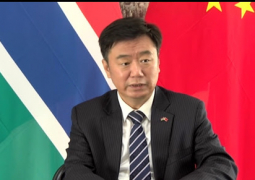
This scarcity turns every medical encounter into a high-stakes exchange, where time is of the essence and resources are precious. The scarcity is not just in numbers but also in the time allocated for each patient. The consultations are often hurried, transactional, and skewed towards immediate problem-solving rather than comprehensive, patient-centered care. This environment does not lend itself to the establishment of trust or the kind of detailed dialogue that is essential for quality care and informed decision-making by the patient.
In such a setting, the luxury of two-way communication—where the patient feels heard and the healthcare provider has the time to listen and explain—is rare. The implications of this are multifold:
Missed Diagnoses: The rush to attend to as many patients as possible can lead to misdiagnoses or overlooking of critical health issues that require more time to uncover and understand.
Patient Education: Educating patients about their conditions and treatments is often truncated or altogether skipped, which is detrimental to patients managing their health effectively outside the clinical setting.
Medication Mismanagement: With such limited access to licensed pharmacists, patients may not receive adequate information on how to take their medications, potential side effects, and interactions, leading to a higher risk of medication errors.
Emotional and Psychological Impact: Patients may feel like a number rather than an individual with unique needs and concerns, leading to dissatisfaction, anxiety, and a general feeling of being uncared for.
Cultural Insensitivity: Without the time to understand a patient’s cultural background, which can significantly impact healthcare decisions and outcomes, there is a risk of providing care that is culturally inappropriate or ineffective.
Underutilization of Healthcare Services: Patients may be discouraged from seeking care due to perceived or actual experiences of rushed consultations, leading to underreporting of illnesses and worsening of health outcomes.
Increased Healthcare Costs: Inefficient consultations can result in the need for repeat visits, which can burden both the healthcare system and the patients financially.
The Gambia’s healthcare system needs strategies to enhance the efficiency and effectiveness of patient-provider interactions. Possible solutions could include the integration of telemedicine to extend the reach of scarce medical professionals, the training of community health workers to provide basic care and health education, and the implementation of policies that encourage and facilitate more patient-centered care practices.
Ultimately, the goal should be to create a healthcare environment where patients are active participants in their care, fully informed about their health conditions and treatment options, and where healthcare providers have the resources and time to deliver the best possible care. This is a complex challenge that requires innovative approaches, international support, and a commitment to healthcare as a fundamental human right.
The brevity of medical appointments in The Gambia is a critical issue that compounds the challenges of an already strained healthcare system. Nurses, often hailed as the healthcare system’s backbone, are forced to manage a workload that far exceeds reasonable expectations. In mere minutes, they must assess patients, make diagnoses, discuss treatment options, and deliver care instructions—a herculean task that leaves little room for the essential human element of healthcare.
In this pressured environment, the patient experience is frequently characterized by confusion. Medical terminology, which can be perplexing even in the best circumstances, becomes a rapid-fire barrage during these abbreviated visits. Patients, many of whom may be dealing with anxiety about their health, are left without the time they need to process information, formulate questions, or seek clarification.
The healthcare journey does not end at the clinic’s doors, and here lies another dimension of the problem. The continuum of care, ideally supported by pharmacists who guide patients on medication management, is severely compromised. In a setting where licensed pharmacists are scarce, patients often turn to unlicensed vendors for their medications. These vendors, while possibly well-intentioned, do not have the formal training necessary to advise on critical aspects of medication use.
Without the proper guidance, patients are vulnerable to a host of medication-related problems. They may be unaware of how to manage side effects, the dangers of drug interactions, or the significance of adhering to prescribed dosing schedules. This lack of information can lead to preventable health crises, such as adverse drug reactions or the worsening of medical conditions due to non-adherence.
The situation necessitates a multifaceted approach to healthcare education and delivery. Interventions could include:
Training Programs: Implementing training programs for nurses that focus on effective communication strategies within time constraints, ensuring that the most crucial information is conveyed succinctly and clearly.
Patient Education Initiatives: Developing patient education materials that are straightforward and accessible, which could be distributed during appointments or made available in community centers.
Pharmaceutical Regulation: Strengthening the regulatory framework to ensure that medications are only sold by qualified individuals, backed by initiatives to increase the number of licensed pharmacists.
Community Health Workers: Leveraging community health workers to bridge the gap, providing basic health education and medication guidance at the local level.
Technology Solutions: Utilizing mobile health technologies to deliver medication management guidance and to provide platforms for patients to ask follow-up questions post-consultation.
Improving the quality of healthcare in The Gambia requires a concerted effort to address the severe limitations imposed by the scarcity of healthcare providers and the brevity of patient interactions. By focusing on enhancing communication, education, and regulatory practices, there is an opportunity to create a more informed patient population and a more responsive healthcare system.
In the hectic environment of The Gambia’s healthcare system, the traditional dynamics between patients and providers are skewed heavily in favor of the latter. The overwhelming pace and volume of work that healthcare professionals face mean that the patient’s role is often reduced to that of a passive recipient of care. This can lead to a disorienting experience, where patients leave consultations with a whirlwind of partially understood diagnoses and treatment plans, their personal concerns and questions left unvoiced and unanswered.
The dominance of healthcare providers in these interactions is a natural outcome of the system’s constraints, but it is a status quo that needs to be challenged. Asserting the patient’s role in the healthcare process is not just about balancing the power dynamics; it’s about ensuring that care is both effective and empathetic. After all, health is a deeply personal responsibility, and understanding one’s own health journey is fundamental to effective care.
The empowerment of patients begins with the recognition that a consultation should not be a one-sided conversation. It is a partnership where the patient’s input is as critical as the medical expertise of the healthcare provider. Each patient carries a wealth of contextual knowledge about their life, habits, cultural background, and beliefs that can significantly influence their health and treatment.
For this partnership to work, patients must feel encouraged to share their knowledge and perspectives. Cultural practices, home remedies, spiritual beliefs, and family medical histories are all pieces of a puzzle that, when put together, give a complete picture of a patient’s health. Healthcare providers must not only be open to this information but also actively solicit it, acknowledging that personalized care plans are more effective when they accommodate the patient’s individual context.
This is a call to action for patients to recognize the expertise they hold through their lived experiences. The knowledge gained from day-to-day life with a condition or body is invaluable and deserves to be heard. It is essential for patients to articulate their concerns, request further explanations when confused, and ensure they fully comprehend the care instructions given to them.
The process of speaking up and asserting oneself in a medical setting can indeed be daunting. The pressure of limited appointment times and the inherent hierarchy within the healthcare system can make patients reticent. However, for the sake of one’s health and well-being, it is a necessary step. It is about fostering a healthcare culture where patients are active participants rather than silent spectators, a culture where their voices are not just heard but are an integral part of the healing process.
To navigate the complexities of healthcare consultations and foster an environment of mutual understanding and respect, patients must become advocates for their own health. Here are some strategies to help you take a more active role during healthcare consultations, ensuring that your needs and concerns are not just acknowledged, but actively incorporated into your care plan.
Preparation is Key: Before stepping into the doctor’s office, take the time to prepare a list of questions and concerns you have about your health. Organize your thoughts and prioritize the issues from most to least urgent to ensure the most critical topics are addressed.
Speak Your Language: Communicate your symptoms and worries in your own words. You don’t need to use medical jargon to be taken seriously; what’s most important is that you convey your experience clearly and honestly.
Request Simplification: Never hesitate to ask for explanations in simpler terms if medical language becomes too complex. To verify your understanding, try paraphrasing the information back to your healthcare provider.
Cultural Context Matters: Your cultural background can have significant implications for your treatment plan. Be open about any cultural practices, dietary restrictions, or beliefs that might influence your care. This information is invaluable in creating a treatment plan that is not only medically sound but also culturally sensitive.
Bring a Companion: A trusted friend or family member can provide emotional support, help you ask important questions, and remember the information provided during the consultation.
Document the Discussion: Take diligent notes, or if your healthcare provider agrees, record the conversation. This can be a crucial reference to ensure you follow through correctly on the advice given.
Follow-Up: If doubts or questions arise after your appointment, don’t hesitate to reach out to your healthcare provider. A good practitioner will welcome your engagement and provide the necessary clarifications.
In conclusion, the path to a healthier life in The Gambia—or anywhere in the world—begins with empowered patients who are equipped to engage actively with their healthcare providers. By preparing for appointments, communicating in your own words, and insisting on clarity, you can help bridge the knowledge gap. Sharing your cultural context and ensuring you have a comprehensive record of the consultation will further tailor your care to your individual needs.
Remember, healthcare is a collaborative journey. As a patient, you are not a passive recipient of care; you are a critical member of your healthcare team. By adopting these strategies, you’ll contribute to a more equitable, effective, and personalized healthcare experience. Together, we can strive towards a system that values and integrates the patient’s voice, leading to better health outcomes and a more satisfying healthcare experience for all.
In peace, love, and good health,
Dr. IDB.
For more information, follow the work of Dr. Badjie and his Innovarx WOW team on www.igh.gm and on social media @innovarxglobal @drIsmailBadjie. Ismail is also the author of newly released book “LIFE AS A HYPHEN” available at Timbooktoo Bookstore and Kairo Café (Fajara).
Disclaimer: The information provided in this article is for general understanding and does not constitute a diagnosis. For specific concerns or detailed health advice, always consult your designated healthcare professional.
Read Other Articles In Health





